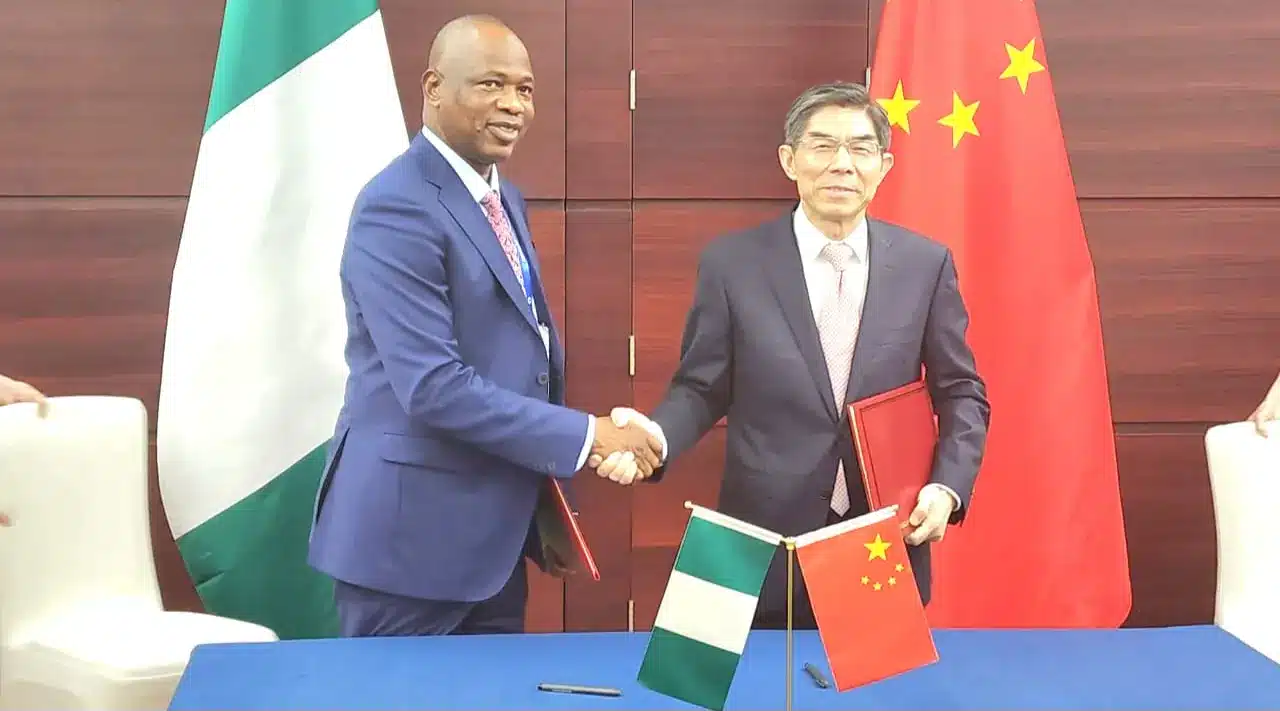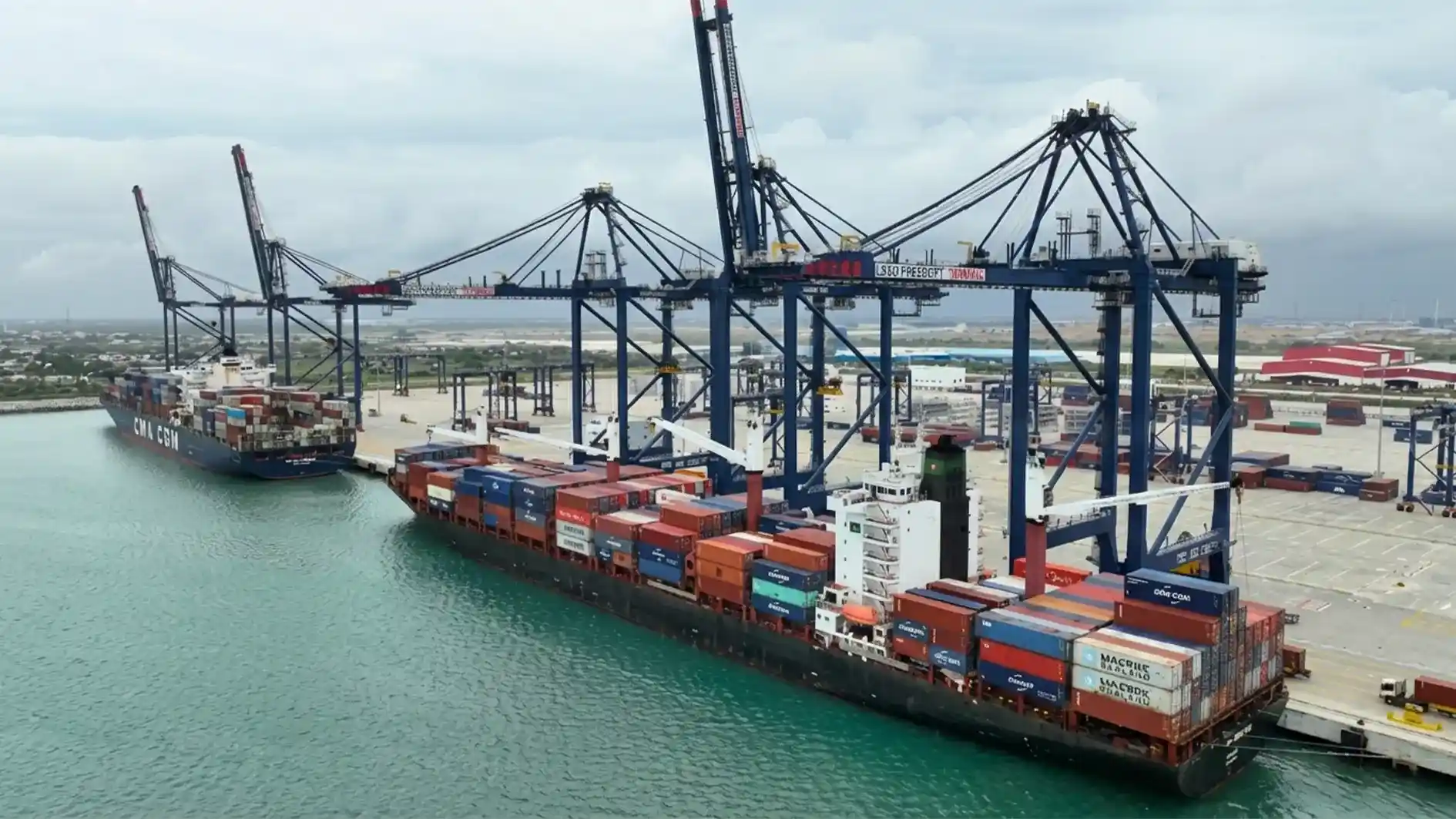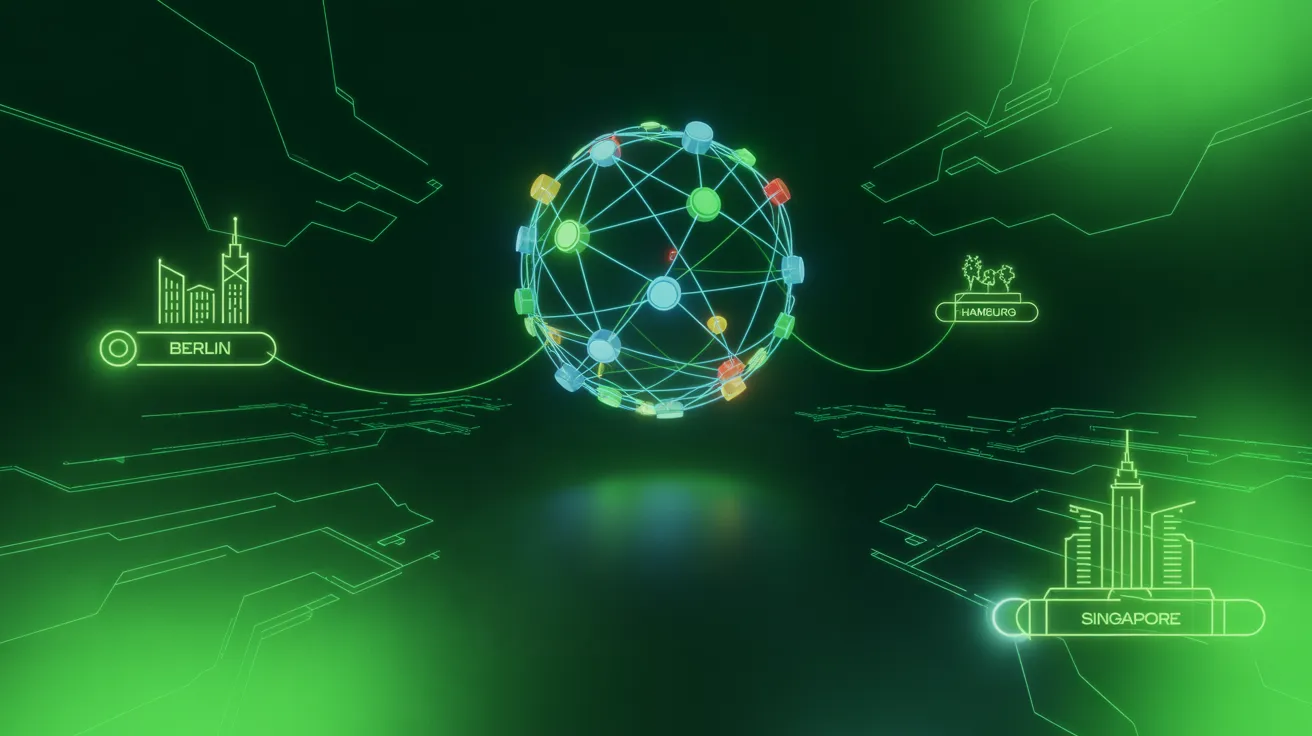In a significant move that could reshape economic ties between China and Nigeria, China has pledged to encourage its most “powerful” companies to invest in the West African nation. This commitment was made following a high-level meeting between Chinese President Xi Jinping and Nigerian President Bola Tinubu in Beijing on September 3, 2024. The discussions, which took place ahead of the 2024 Summit of the Forum on China-Africa Cooperation (FOCAC), signal a new era of strategic cooperation between the two countries, with far-reaching implications for the broader China-Africa relationship.
A Strategic Partnership: Building the Future of Nigeria’s Economy
China’s commitment to Nigeria comes at a crucial time for the West African giant, which is grappling with economic challenges including fluctuating oil prices, currency instability, and a need for infrastructure development. In their joint statement, China and Nigeria expressed a shared vision of strengthening economic ties, particularly through increased Chinese investment in Nigeria’s industrial sectors. President Xi Jinping emphasized the importance of this partnership in the context of global South-South cooperation, highlighting that both countries, as major developing nations, can play a pivotal role in shaping the future of the global economy.
“China and Nigeria, as major developing countries, strengthening strategic coordination, will inject fresh impetus into China-Africa relations in the new era and spearhead common progress among Global South countries,” Xi said.
This meeting builds on the historical ties between the two nations, which have seen China emerge as Nigeria’s largest bilateral lender, with loans totaling $5 billion as of March 2024. These funds have been critical in financing key infrastructure projects across Nigeria, including the construction of railways, highways, and the development of deep-sea ports. As Nigeria seeks to diversify its economy away from oil dependency, China’s role as an economic partner is becoming increasingly significant.
Expanding Chinese Investment: Sectors of Focus
One of the key outcomes of the meeting was China’s commitment to encourage its leading companies to invest in Nigeria’s burgeoning industrial sectors. This includes the establishment of factories, the development of energy resources, and the exploration of Nigeria’s vast mineral wealth. Nigeria, on its part, welcomed the involvement of Chinese firms in these critical areas, recognizing the potential for such investments to spur economic growth and create jobs.
The Chinese delegation expressed particular interest in Nigeria’s e-commerce and logistics sectors, areas where China has extensive expertise and experience. With the rapid digitalization of Nigeria’s economy, there is significant potential for growth in these sectors, and Chinese companies are well-positioned to contribute to this expansion. The joint statement also highlighted China’s intention to support Nigeria in diversifying its economy, helping it to become less reliant on oil exports and more resilient in the face of global economic fluctuations.
The Belt and Road Initiative: Strengthening Infrastructure Connectivity
China’s Belt and Road Initiative (BRI) has already made a substantial impact on Nigeria’s infrastructure landscape, and the recent talks are set to deepen this collaboration. The BRI, which aims to enhance global trade and stimulate economic growth across Asia, Europe, and Africa by improving infrastructure connectivity, has delivered several high-profile projects in Nigeria. These include the construction of the Lekki Deep Sea Port, which is expected to become a key hub for West African trade, and the Abuja-Kaduna railway line, which has significantly improved transportation links within the country.
President Tinubu reaffirmed Nigeria’s commitment to the BRI, noting that the initiative aligns with his administration’s goals of enhancing infrastructure, boosting trade, and fostering economic development. “This comprehensive strategic partnership should result in robust development, stability, and security in the West African sub-region,” Tinubu stated.
The ongoing collaboration under the BRI framework also includes plans to expand Nigeria’s railway network further, improve road infrastructure, and develop energy projects that will help address the country’s chronic power shortages. The joint statement emphasized that these projects are not just about building infrastructure but also about transferring knowledge and technology, which are crucial for Nigeria’s long-term development.
Monetary and Financial Cooperation: A New Frontier
Another significant aspect of the discussions between China and Nigeria was the agreement to promote “flexible and diverse” regional monetary and financial cooperation. This includes exploring local currency swaps as a means to facilitate bilateral trade. Currency swaps allow two countries to exchange currencies and make payments directly in each other’s currencies without using a third-party currency, such as the US dollar. This can reduce transaction costs, mitigate exchange rate risks, and strengthen financial ties between the two nations.
For Nigeria, which has been dealing with currency volatility and pressure on its foreign exchange reserves, such an arrangement could provide much-needed stability and support for its trade with China. It also aligns with broader efforts by developing countries to reduce their reliance on the US dollar and build more resilient financial systems.
China’s support for Nigeria in this area reflects its broader strategy of deepening financial integration with Africa, as part of its efforts to create a more balanced and diversified global financial system. This initiative is particularly important as China continues to push for the internationalization of the yuan, positioning it as a global currency alongside the US dollar and the euro.
Military and Security Cooperation: Enhancing Stability in the Region
The joint statement also highlighted China’s commitment to supporting Nigeria in improving its military technology, equipment, intelligence, and other capabilities. This aspect of the partnership is particularly significant given the security challenges facing Nigeria and the broader West African region, including insurgencies, piracy, and organized crime.
China’s support in this area will include the provision of military hardware, training, and intelligence sharing, with the aim of enhancing Nigeria’s ability to maintain peace and security within its borders and in neighboring regions. The two countries also agreed to cooperate on intelligence to combat money laundering and terrorist financing, which are major concerns in both countries.
This cooperation extends to maintaining stability in the Sahel region and the Gulf of Guinea, areas that have been plagued by insecurity and instability. The Sahel region, in particular, has been a hotspot for terrorist activity, and Nigeria, as one of the largest and most influential countries in West Africa, plays a critical role in regional security efforts. China’s involvement in these areas underscores its commitment to being a responsible partner in Africa’s development and security.
Human Resources Development and Technology Transfer
As part of their broader partnership, China and Nigeria have agreed to collaborate on human resources development and technology transfer. This includes initiatives to build capacity in key sectors such as energy, manufacturing, and information technology. During his visit to China, President Tinubu toured the Huawei Research Lab, where he secured a commitment from the tech giant to establish a joint solar PV test lab in Nigeria. This lab will focus on developing solar energy technologies tailored to Nigeria’s needs, supporting the country’s efforts to increase its use of renewable energy.
Another significant development was the pledge by a Chinese firm to establish an assembly plant for electric tricycles in Nigeria. This initiative aligns with Nigeria’s push towards cleaner and more sustainable transportation options and is expected to create jobs and reduce the country’s reliance on imported vehicles. The plant will also serve as a training center for Nigerians in technology and renewable energy development, furthering the goal of technology transfer and local capacity building.
Implications for Nigeria’s Economic Future
The agreements reached during the meeting between President Xi Jinping and President Bola Tinubu have far-reaching implications for Nigeria’s economic future. By deepening its partnership with China, Nigeria stands to benefit from increased investment, enhanced infrastructure, and greater integration into the global economy. The focus on sectors such as energy, manufacturing, and technology is particularly important as Nigeria seeks to diversify its economy and reduce its dependency on oil exports.
China’s role as Nigeria’s largest bilateral lender also highlights the strategic importance of this relationship. The loans provided by China have been instrumental in financing key infrastructure projects that are critical for Nigeria’s long-term economic development. However, this also raises questions about debt sustainability, as Nigeria must balance the need for investment with the challenges of managing its debt levels.
Challenges and Opportunities: Navigating a Complex Relationship
While the partnership between China and Nigeria offers many opportunities, it is not without its challenges. One of the key concerns is the issue of debt sustainability, as Nigeria’s growing debt to China could become a burden if not managed carefully. Critics have raised concerns about the potential for “debt trap diplomacy,” where developing countries become overly dependent on Chinese loans and are unable to repay them, leading to a loss of sovereignty over key assets.
However, both China and Nigeria have emphasized that their relationship is based on mutual respect and benefit. The focus on industrial investment, technology transfer, and capacity building reflects a commitment to ensuring that the partnership delivers tangible benefits for Nigeria’s development.
The success of this partnership will depend on the ability of both countries to navigate these challenges and capitalize on the opportunities presented by their cooperation. As Nigeria continues to grow and develop, its relationship with China will play a critical role in shaping its economic future.
Conclusion: A New Era of China-Nigeria Relations
The meeting between President Xi Jinping and President Bola Tinubu at the 2024 FOCAC Summit marks the beginning of a new era in China-Nigeria relations. With commitments to increased investment, infrastructure development, and military cooperation, the two countries are poised to deepen their strategic partnership and contribute to the broader goals of China-Africa cooperation.
As the world’s attention turns to Beijing for the FOCAC Summit, the outcomes of the China-Nigeria meeting will be closely watched by policymakers, investors, and analysts. The decisions made here will not only impact the future of Nigeria’s economy but also shape the broader dynamics of China-Africa relations in the years to come.
Photo source: Google
By: Montel Kamau
Serrari Financial Analyst
4th September, 2024
Article, Financial and News Disclaimer
The Value of a Financial Advisor
While this article offers valuable insights, it is essential to recognize that personal finance can be highly complex and unique to each individual. A financial advisor provides professional expertise and personalized guidance to help you make well-informed decisions tailored to your specific circumstances and goals.
Beyond offering knowledge, a financial advisor serves as a trusted partner to help you stay disciplined, avoid common pitfalls, and remain focused on your long-term objectives. Their perspective and experience can complement your own efforts, enhancing your financial well-being and ensuring a more confident approach to managing your finances.
Disclaimer: This article is for informational purposes only and does not constitute financial advice. Readers are encouraged to consult a licensed financial advisor to obtain guidance specific to their financial situation.
Article and News Disclaimer
The information provided on www.serrarigroup.com is for general informational purposes only. While we strive to keep the information up to date and accurate, we make no representations or warranties of any kind, express or implied, about the completeness, accuracy, reliability, suitability, or availability with respect to the website or the information, products, services, or related graphics contained on the website for any purpose. Any reliance you place on such information is therefore strictly at your own risk.
www.serrarigroup.com is not responsible for any errors or omissions, or for the results obtained from the use of this information. All information on the website is provided on an as-is basis, with no guarantee of completeness, accuracy, timeliness, or of the results obtained from the use of this information, and without warranty of any kind, express or implied, including but not limited to warranties of performance, merchantability, and fitness for a particular purpose.
In no event will www.serrarigroup.com be liable to you or anyone else for any decision made or action taken in reliance on the information provided on the website or for any consequential, special, or similar damages, even if advised of the possibility of such damages.
The articles, news, and information presented on www.serrarigroup.com reflect the opinions of the respective authors and contributors and do not necessarily represent the views of the website or its management. Any views or opinions expressed are solely those of the individual authors and do not represent the website's views or opinions as a whole.
The content on www.serrarigroup.com may include links to external websites, which are provided for convenience and informational purposes only. We have no control over the nature, content, and availability of those sites. The inclusion of any links does not necessarily imply a recommendation or endorsement of the views expressed within them.
Every effort is made to keep the website up and running smoothly. However, www.serrarigroup.com takes no responsibility for, and will not be liable for, the website being temporarily unavailable due to technical issues beyond our control.
Please note that laws, regulations, and information can change rapidly, and we advise you to conduct further research and seek professional advice when necessary.
By using www.serrarigroup.com, you agree to this disclaimer and its terms. If you do not agree with this disclaimer, please do not use the website.
www.serrarigroup.com, reserves the right to update, modify, or remove any part of this disclaimer without prior notice. It is your responsibility to review this disclaimer periodically for changes.
Serrari Group 2025
















